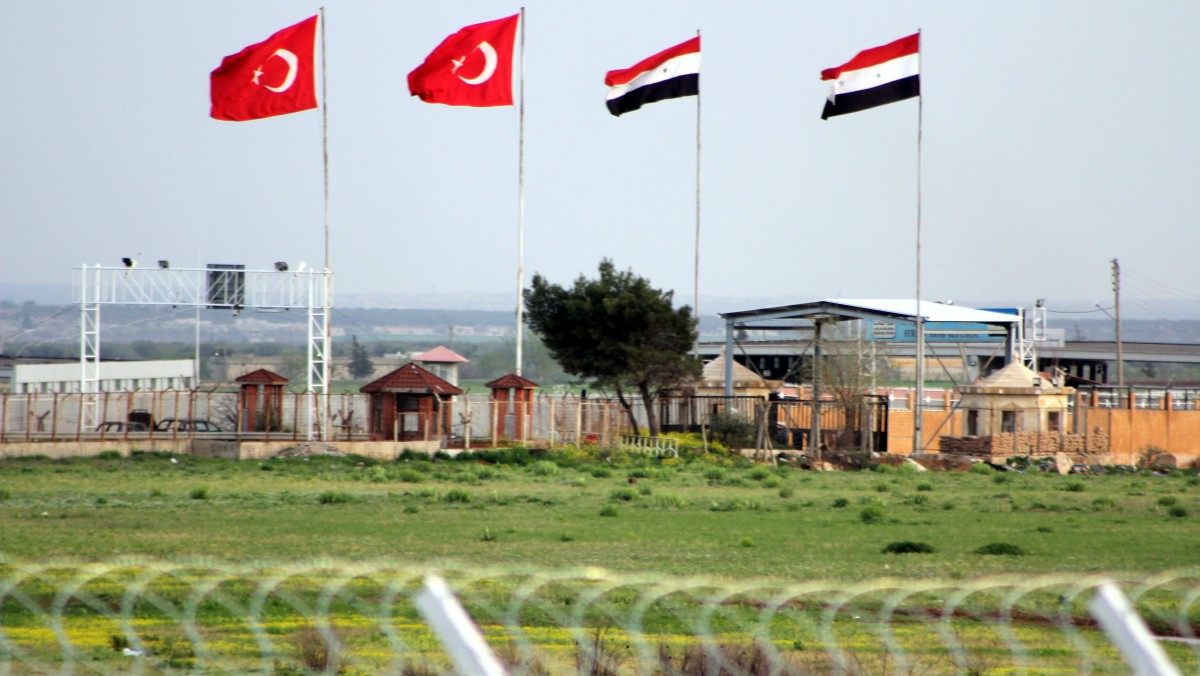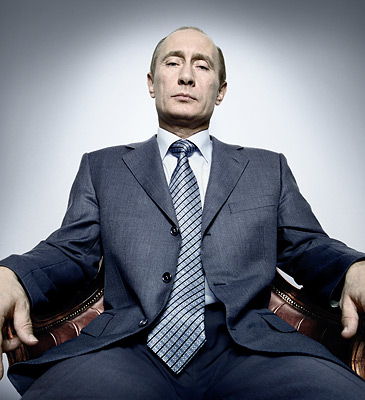Police showed up on Ksenia Sobchak's doorstep at 8 a.m. in the middle of a sleepy long weekend and started a search.
They spent hours in her apartment on Monday, going through the belongings of the 30-year-old TV personality, socialite and restaurateur before she had a chance to get properly dressed, Sobchak recounted to a Moscow radio station on Wednesday.
Before they left, they served a summons for Sobchak to report to investigators the next day for questioning over violence at an opposition rally on the eve of President Vladimir Putin's May 7 inauguration - a protest she did not attend.
The search was part of an arsenal of tactics that have drawn chilling comparisons with Soviet-era treatment of dissenters considered "enemies of the state", and have Russians wondering how far the former KGB officer will go to quash threats to his authority in a six-year term he has hinted may not be his last.
"Putin has not invented anything new - a great deal of what he is doing comes from the Soviet era," said Lyudmila Alexeyeva, a rights defender who began her career monitoring show trials at the start of the Soviet dissident movement in the 1960s.
"He would probably like to use exclusively Soviet methods, but that's impossible in the 21st century," said Alexeyeva, 84.
Putin's critics say he is doing his best to follow tradition.
"I never thought we would return to such repression in this country," Sobchak, whose late father, a mayor of St. Petersburg, gave Putin a start in politics two decades ago and was one of the liberal politicians credited with advancing democracy in Russia after the 1991 Soviet collapse.
She said investigators forced her to read intimate letters out loud and "didn't even let me get dressed for some time" after she was roused from sleep and answered the door.
"They would not let me go to the bathroom alone," Sobchak said on Ekho Moskvy radio. "There was not even a woman there, I had to do this in front of man in a mask with machinegun."
Police and investigators also searched the homes of opposition leaders Alexei Navalny, Sergei Udaltsov and Ilya Yashin on Monday, rifling through refrigerators and children's rooms and leaving with boxes of belongings from family photographs to computer drives.
The searches were followed by hours of questioning on Tuesday that kept some of the best-known opposition leaders away from the biggest protest since Putin's inauguration for his third term in office.
Tens of thousands marched through Moscow chanting "Russia without Putin", defying a law Putin signed on Friday establishing fines, in some cases thousands of dollars, for participants in demonstrations at which order is violated.
Access to websites of at least three media outlets that are platforms for criticism of Putin, including one that was broadcasting the protest live, was blocked or disrupted on Tuesday by hacker attacks.
The Ekho Moskvy site was inaccessible during the interview with Sobchak, in which she said she had refused to answer all 56 questions posed by investigators a 5-1/2-hour session.
"We will see how far this absurdity is carried," said Sobchak. She has been summoned for more questioning on Friday, signaling no let-up in pressure that has clearly left her shaken.
"I am a fighter, but suddenly I sat down and my hands were shaking yesterday because there is a feeling of helplessness," she said of the search. "These people are walking around your apartment, doing as they like."
Navalny's office was searched after he was questioned on Tuesday and he was questioned again on Wednesday, as was Udaltsov, who had ignored the initial summons and attended the rally on Tuesday.
"RULE FOR LIFE"
The apartment of Boris Nemtsov, a former deputy premier who called at the protest for peaceful efforts to "rid the country of this usurper who wants to rob us and rule for life", was searched later the same day.
Putin, 59, remains popular among millions of Russians who credit him with establishing stability and improving living standards during an oil boom that coincided with his initial two-term presidency in 2000-2008.
He won a March election easily but returned to the presidency with his authority dented by big protests reflecting anger over evidence of fraud in a December parliamentary vote and dismay among Russians tired of his rule.
Police largely left those protests alone but began to crack down after Putin's election, beating protesters at the rally on May 6 - in clashes police and protesters blame on one another - and briefly detaining hundreds in subsequent weeks.
Sobchak and the others are being treated as witnesses in the investigation into the violence at that rally, but the pressure carries an implicit threat they could face charges punishable by prison terms, like 12 detainees in the case.
For many Russians, the searches and questioning of political foes, real or perceived, carries echoes of the era of Soviet police tactics that often targeted prominent people but cast a pall of fear over the whole country.
A Twitter hashtag that translates as #hello1937 - a reference to one of the deadliest years of Soviet dictator Josef Stalin's purges and repression - was used frequently on Monday as Russians learned of the apartment searches.
PUTIN'S "MISTAKE"
Mikhail Gorbachev, whose liberalization policies as the last Soviet president in the 1980s ended in the collapse of communism, said increasing fines for protest violations was "a mistake" by Putin, whom he had urged not to seek re-election.
"It needs to be corrected as soon as possible. It would be best if the president himself does this," Gorbachev, 81, told Reuters.
Putin's tough tactics will also add tension to ties with the United States and the European Union, already strained by deep differences over the conflict in Syria, Putin's anti-Western campaign rhetoric and other issues.
The U.S. State Department said on Monday it was "deeply concerned about the apparent harassment of Russian political opposition figures" and said the searches, summonses and law increasing fines "raise serious questions about the arbitrary use of law enforcement to stifle free speech and free assembly".
Putin is unlikely to make changes in the law, but he showed flexibility in his approach to protests on Tuesday. Police mounted a light presence at the march and rally, which was held with permission from the authorities. No one was detained.
But critics say the law is just one method used to keep people off the streets.
A 22-year-old student at the rally, who gave her name only as Darya, said most of the people she knew who went to the first big opposition protest in December stayed home on Tuesday because they had seen others lose jobs or face problems at university.
"I think these searches are an attempt to fabricate criminal cases against leaders of street demonstrations, because it is clear that street protests alarm the Kremlin very much," said veteran dissident Alexeyeva.
Gennady Gudkov, an opposition lawmaker, said the pressure tactics and the protest law, which Putin signed despite warnings it was unconstitutional, indicate influential hawks have gained the upper hand in an internal struggle over Putin's policies.
"It shows that the Kremlin hardliners who say we will not negotiate with protesters or hold dialogue with society have won out," said Gudkov, a KGB veteran who is among leaders of the protest movement.

Like many opponents of Putin, Gudkov said the tough tactics were bound to backfire, radicalizing people and bringing more out into the streets: "In the absence of real dialogue between the authorities and their opponents," he said, "The situation is moving toward civil war."
Alexeyeva said such a violent outcome is far off because most Russians, steeped in memories of the bloody upheavals that wracked their country repeatedly in the 20th century, share Putin's fear of revolution: "No one wants blood," she said.
But protests could turn violent "if the authorities use forceful methods too actively", she said, and warned that the only way Putin could head off the challenge to his authority was through compromise.
"I'm not a fortune-teller and I can't predict how it will all play out," she said. "But I do know that society has awoken and there is no way to stop it except by giving the people the changes they are demanding."











